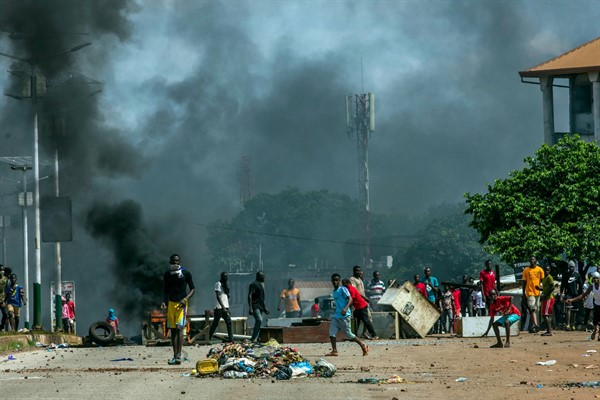Voters in Guinea went to the polls last month for a general election that saw President Alpha Conde clinch a controversial third term. Among a total of 12 candidates on the ballot, competition centered around the 82-year-old Conde and his longtime rival, former Prime Minister Cellou Dalein Diallo, who also ran against Conde in 2010 and 2015. The day after the Oct. 18 election, Diallo claimed that early results showing Conde in the lead were fraudulent, and declared victory based on his own party’s vote tally. Nonetheless, Guinea’s electoral commission subsequently reported official results showing Conde as the winner, with nearly 60 percent of the vote compared to Diallo’s 33.5 percent.
Diallo’s attorney appealed that outcome to the Constitutional Court this week, claiming he has “irrefutable evidence” of irregularities, but the court is unlikely to overturn the official results. Conde removed his most outspoken critic on the court’s bench, Kelefa Sall, in 2018, and the court subsequently signed off on constitutional changes that could allow Conde to stay in power. If the court also validates Conde’s recent victory, it would guarantee a third term as president for him without the need for a runoff.
While there were some reports of problems at polling stations and difficulties with voter registration, Election Day was largely peaceful, and monitors from the Economic Community of West African States and the African Union said the vote was “sufficiently” free and fair. However, deadly protests escalated across the country in the wake of Conde’s apparent landslide win. At least 20 people have been killed in clashes between protesters and security forces since the election, including two police officers, with dozens more injured. Opposition groups, however, claim the real toll is higher, with as many as 30 fatalities.

